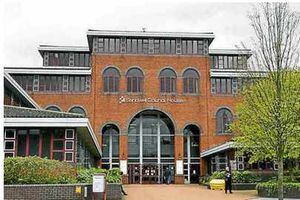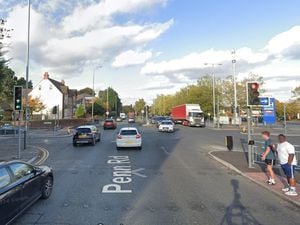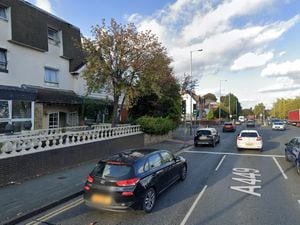Midlands councils use spy laws to snoop on residents 400 times
Midlands councils have used controversial spy powers to snoop on residents nearly 400 times in the last five years.

Surveillance powers have been used 388 times, including to catch fly-tippers, graffiti vandals, noisy neighbours, and even dog foulers since 2010.
Techniques vary from direct surveillance, such as following a suspect, to intercepting their phone records.
Sandwell Council has used powers under the Regulatory Regulation of Investigatory Powers Act (RIPA) 180 times since 2010.
Wolverhampton used the powers 152 times, Staffordshire County Council 33 times, and Dudley Council 18 times.
Stafford Borough Council has used it just five times.
But the use has been cut dramatically to just a handful of times in the past two years since local authorities were required to get magistrates' permission.
The use of the powers have been hit by controversy after it was revealed police forces had been using the legislation on journalists to identify their sources.
Civil rights campaigners say the law was passed to fight terrorism and serious organised crime but authorities were able to unjustifiably intrude into residents' lives.
West Bromwich East MP Tom Watson, who has campaigned for surveillance laws to be restricted, said: "RIPA was passed with the intention it would be used to fight terrorism and serious organised crime – not to spy on ordinary people. One thing all the parties agree on is that it needed to change and there is still need for further reform on its use by other agencies."

Figures show the powers were mostly used by the councils to catch rogue traders and benefits cheats and those committing anti-social behaviour.
All councils said they have not targeted journalists.
Sandwell used the powers 95 times on trading standards investigations, 72 times in anti-social behaviour cases, 10 in environmental protection breaches, and three cases of benefit fraud.
In Wolverhampton, suspected benefit cheats have been placed under surveillance 35 times. The powers have also been used to catch fly-tippers, identify fly-posters, and noisy neighbours on 45 occasions.
Staffordshire County Council used surveillance powers nine times to investigate underage alcohol sales, on seven occasions in suspected benefit cheat cases, and four times in trading standard cases and four times in underage tobacco sale investigations.
Walsall Council failed to respond to a request for the data under the Freedom of Information Act.
Black Country and Staffordshire councils used surveillance on residents 388 times between 2010 and the end of 2014.
But since November 2012, the use of the powers has plummeted since the law was tightened up to stop councils from snooping on people suspected of 'minor offences' such as dog fouling and littering.
Sandwell Council used RIPA powers 81 times in 2010, 58 times in 2011, 31 times in 2012, six times in 2013, and four times in 2014.
Likewise Wolverhampton City Council used the powers 69 times in 2010 but just twice last year.
Dudley Council used it just twice in 2014, Staffordshire County Council used it nine times, but Stafford Borough Council has not used it more over two years.
Lists revealed under Freedom of Information law shows councils used the spy powers on noisy neighbours, dog foulers, graffiti vandals, fly-tippers and fly-posterers.
But now councils can only target people suspected of a crime that carries a minimum six-month prison sentence with the exception of investigations into the sales of underage alcohol and tobacco.
South Staffordshire MP Gavin Williamson said: "The sharp drop shows that the changes in the law have meant that local authorities now cannot overstep the mark.
"The high figures before the change show that there was abuse of the law to target people for minor offence which the legislation was never intended to be used for."
Councillor Darren Cooper, leader of Sandwell Council, said: "We reviewed our use of RIPA in light of new government guidance and changes in legislation around which offences the powers could be used to investigate. This is the main reason we're not using it as much now.
"The new system of judicial oversight by magistrates has not deterred us from using it where we need to in the fight against crime.
"Our priority is to protect people from criminals – and we continue to use RIPA when there is no other option to gain evidence, for example in tackling rogue traders.
"I assure residents we use the powers sparingly and we have systems in place to ensure people's freedoms are respected and that we apply for RIPA authorisation as required."
Wolverhampton City Council spokesman Tim Clark said: "There are a number of factors that have contributed to the drop in the number of RIPA authorisations. The crime threshold imposed in November 2012 removed the ability to undertake directed surveillance in relation to a number of environmental crime issues. Also, our benefit fraud investigations no longer undertake covert surveillance. These factors, combined with reductions in staffing levels due to the need to make savings, have contributed to the overall decrease in authorisations."





